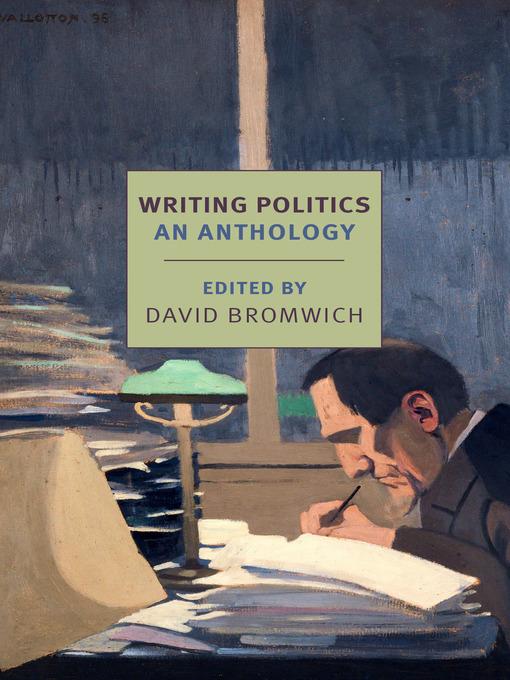
Writing Politics
An Anthology
کتاب های مرتبط
- اطلاعات
- نقد و بررسی
- دیدگاه کاربران
نقد و بررسی

July 1, 2020
Penetrating essays across three centuries consider freedom, power, and justice. Bromwich, a Guggenheim fellow and professor of English at Yale, collects essays, from the early-18th to mid-20th centuries, addressing critical political issues not only of each writer's time, but of our own. The essays, writes the editor, "show the changing face of oppression and violence, and the invention of new paths for improving justice. Arbitrary power is the enemy throughout." Several selections are likely to be familiar: Jonathan Swift's "A Modest Proposal," Henry David Thoreau's "Civil Disobedience," Martin Luther King Jr.'s "Letter From Birmingham City Jail," and Gandhi's "The Doctrine of the Sword." Abraham Lincoln, though, is represented not by his Gettysburg Address but by a letter defending the Emancipation Proclamation; Ralph Waldo Emerson, by a moving protest against the Fugitive Slave Law; and George Eliot, by an argument against anti-Semitism. William James, a member of the Anti-Imperialist League, protests America's aggression in the Philippines. Repeatedly, writers urge the need for independent thought against unexamined beliefs: As Victorian journalist Walter Bagehot wrote, many "wish others to think as they do, not only because they wish to diffuse doctrinal truth, but also and much more because they cannot bear to hear the words of a creed different from their own." Likewise, W.E.B. Du Bois reminds us, "we have attempted to enthrone any chance majority and make it rule by divine right. We have kicked and cursed minorities as up-starts and usurpers when their sole offense lay in not having ideas or hair like ours." In "Useful Work Versus Useless Toil," William Morris cautions, "it has become an article of the creed of modern morality that all labour is good in itself--a convenient belief to those who live on the labour of others." Overall, the sophistication of language and argument throughout this anthology testifies to what public discourse used to sound like before it became dominated by Twitter rants. Well-chosen, enduringly relevant selections.
COPYRIGHT(2020) Kirkus Reviews, ALL RIGHTS RESERVED.

























دیدگاه کاربران